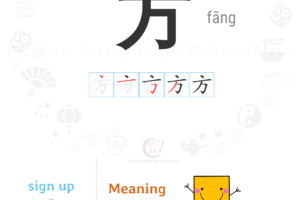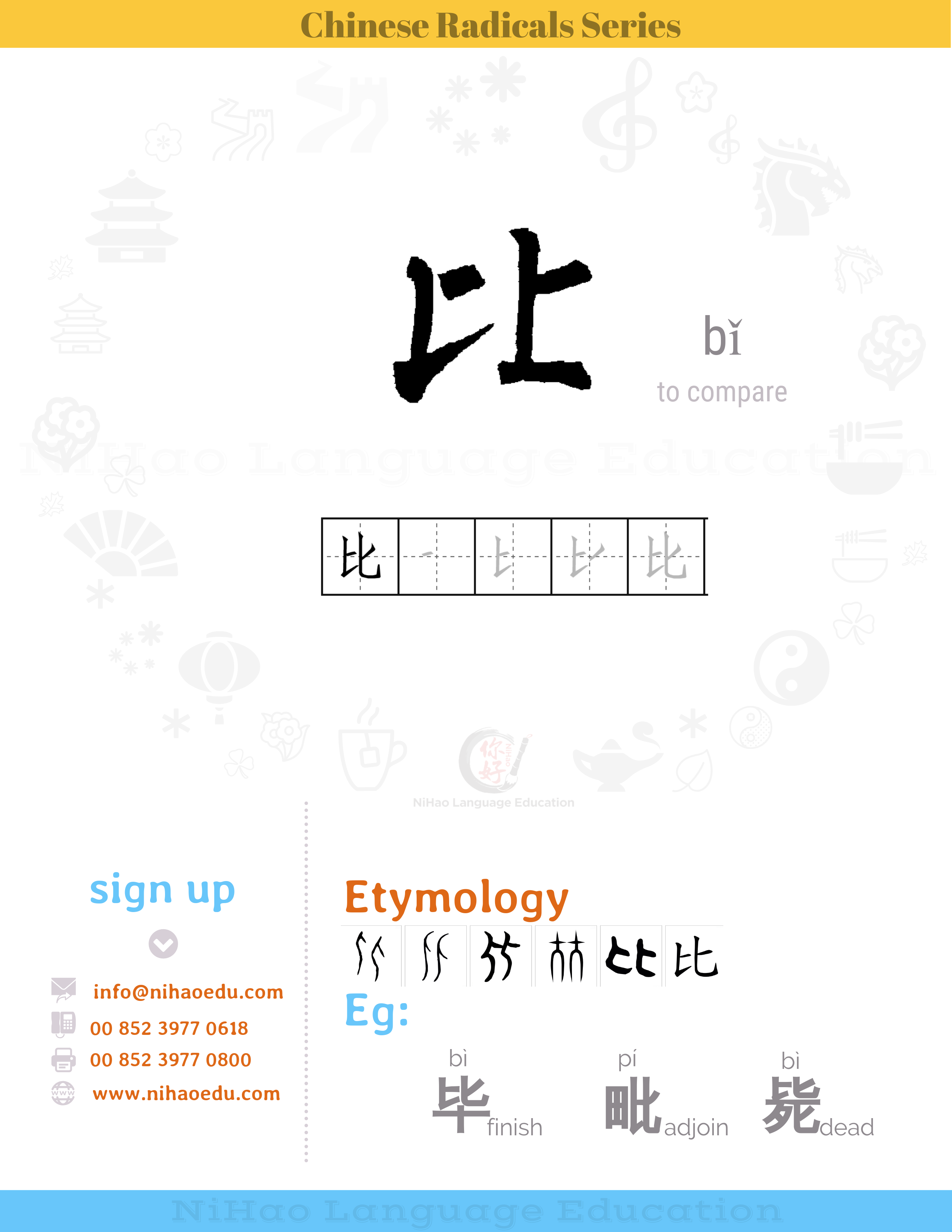Chinese Radicals Series 比
- Posted by NIHAO
- Categories Chinese Radicals Series
- Date 2020-10-22
- Comments 0 comment
The Chinese Radicals Series is not just to motivate our students to take a keen interest in learning Chinese, but also provide you a link between the language and the culture so that our students will not only know the meanings of the characters or the common phrases in which they appear but also the cultural context of the characters.
Today, we are going to learn the basic radical 比bǐ, it’s called bǐ zì tóur in the Chinese term.
The ancient character for the word 比bǐ depicts two people standing close together, one in front, the other behind. Thus, the word 比bǐ means “to compare”.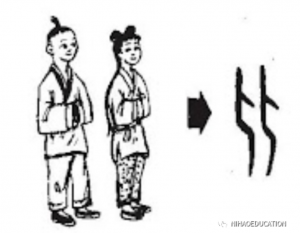
For example, 比较 (bǐ jiào, to compare) and 比美 (bǐ měi, “to be of comparable standards”).
The word also conveys the meaning of “competition”, for example 比赛 (bǐ sài, competition), 比试 (bǐ shì, to compete) and 比武 (bǐ wǔ, compete in martial arts).
However, two people that are close together can also be plotting something or doing something illegal. So, the word in the phrase 朋比为奸 (péng bǐ wéi jiān) means “conspire” or “collude”.
As a component in word formation, 比 bǐ is often used im indicate pronunciation, for example, 毕 (bì, to finish/graduate),毗 (pí, adjoin),毙 (bì, dead).
For example, 比较 (bǐ jiào, to compare) and 比美 (bǐ měi, “to be of comparable standards”).
The word also conveys the meaning of “competition”, for example 比赛 (bǐ sài, competition), 比试 (bǐ shì, to compete) and 比武 (bǐ wǔ, compete in martial arts).
However, two people that are close together can also be plotting something or doing something illegal. So, the word in the phrase 朋比为奸 (péng bǐ wéi jiān) means “conspire” or “collude”.
As a component in word formation, 比 bǐ is often used im indicate pronunciation, for example, 毕 (bì, to finish/graduate),毗 (pí, adjoin),毙 (bì, dead).
Idioms and Phrases.
(The example sentences below are for Intermediate Level Two(or above)students).
- 比比皆是 bǐ bǐ jiē shì
something that can be found everywhere
Eg:
你找彩色贝壳吗?海滩上比比皆是。
- 比方 bǐ fāng(conjunction,+sentence)
for instance; for example.
Eg:
心情有很多种,比方说:有高兴的、伤心的、兴奋的、忧伤的、开朗的、悲痛欲绝的、惹人怜爱的,等等。
- 比如 bǐ rú(prep,+object)
for instance; for example.
Eg:
我喜欢吃黄色的水果,比如:香蕉🍌、芒果🥭、橙子🍊等等。
- 比分 bǐ fēn
score
比赛虽然输了,但比分很接近。
- 比例 bǐ lì
proportion
人的志向通常和他们的能力成比例。
- 比邻 bǐ lín
next to each other
朋友之间的友谊,不会因距离而隔断,不会因时间而消磨。就像王勃所说的“海内存知己,天涯若比邻”。
- 比喻 bǐ yù
analogy; metaphor
“一箭双雕” 比喻做一件事可以达到两个目的。
你也许也喜欢
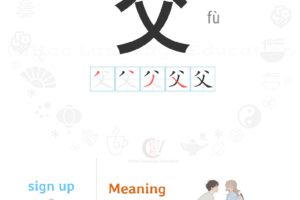
Chinese Radicals Series父fù
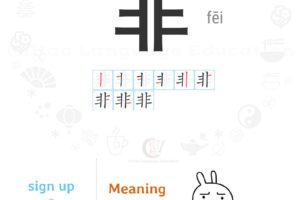
Chinese Radicals Series非fēi
